#african entrepreneurs
Text
Circular economy: A seat at the table for African entrepreneurs, By Natalie Beinisch
Circular economy: A seat at the table for African entrepreneurs, By Natalie Beinisch
As a part of their broader vision to develop the circular economy, WEF could add a seat at the table for African entrepreneurs to grow this model further. This would include programmes that are focused on start-up financing, technical and managerial support for e-waste entrepreneurs, as well as support for the development of e-waste hubs. By adding this seat, the WEF would be playing an integral…
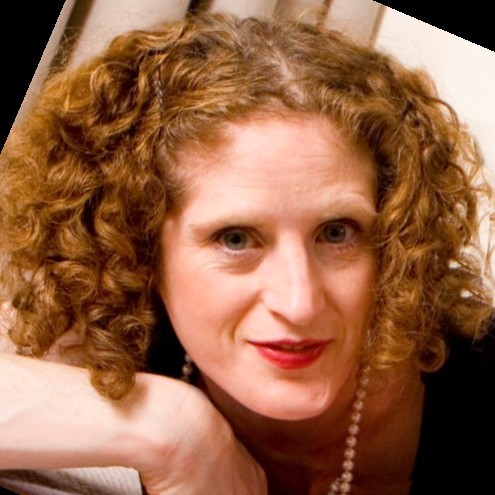
View On WordPress
0 notes
Photo

Ruth Ellis (deceased)
Gender: Female
Sexuality: Lesbian
DOB: 23 July 1899
RIP: 5 October 2000
Ethnicity: African American
Occupation: Activist, entrepreneur
Note 1: Her printing business, the Ellis & Franklin Printing Co., was the first woman-owned printing shop in the state of Michigan.
Note 2: Her house served as a refuge for African American gays and lesbians. She would continue to support those who needed books, food, or assistance with college tuition.
Note 3: The Ruth Ellis Center honors the life and work of Ruth Ellis and is one of only four agencies in the United States dedicated to homeless LGBT youth and young adults.
#Ruth Ellis#lgbt history#lesbian history#black history#lgbt#female#lesbian#1899#rip#historical#black#poc#african american#activist#entrepreneur#popular#popular post#300
457 notes
·
View notes
Video
“Support us, trust us, follow us and invest in us.
Because when Black women win, we all win.”
- Tracee Ellis Ross
#tracee ellis ross#actress#black actress#entrepreneur#2022#racial justice trailblazer award#lawyers' committee for civil rights under law#award ceremony#black woman#black women#black girls#blackish#tv show#african american#african american women#diana ross#video#queen#sbrown82
216 notes
·
View notes
Text
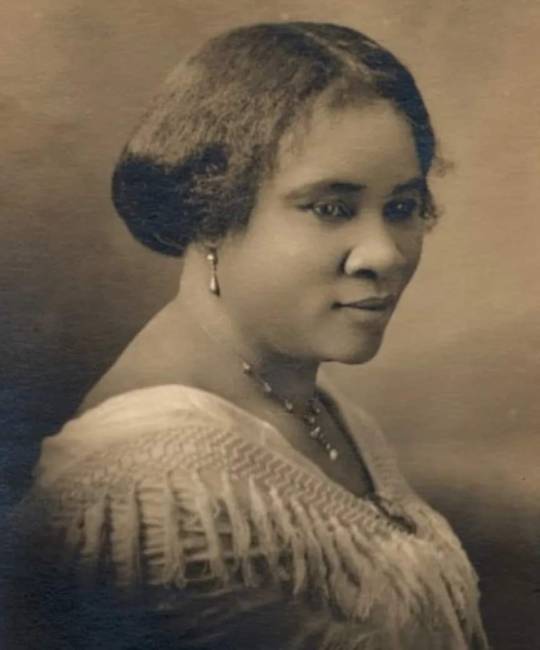
Madam C.J. Walker was born Sarah Breedlove to former slaves, Owen and Minerva Breedlove in Delta, Louisiana on December 23, 1867. Breedlove became an orphan at age seven when her parents died. Three years later, ten-year-old Sarah and her sister moved across to river to Vicksburg, Mississippi to work as maids. By her fourteenth birthday, Sarah married Moses McWilliams of Vicksburg and three years later gave birth to her only daughter Lelia (who later changed her name to A’Lelia). Breedlove became a widow in 1887. She and her daughter moved to St. Louis to join her older brothers who were barbers. While in St. Louis she found work as a washer woman earning $1.50 per day. She also married her second husband, John Davis, in 1894. The marriage lasted nine years.
In 1905, Breedlove moved to Denver, Colorado where she sold hair care products for St. Louis businesswoman Annie Pope-Turnbo. It was in Denver that she married her third husband, newspaper sales agent Charles Joseph Walker. She also decided in Denver to found a business to manufacture and market her own hair treatment formula which she called Wonderful Hair Grower. Breedlove adopted a new professional name, Madam C.J. Walker, which she retained after her divorce from Charles Walker in 1912 and began to offer her products for sale through door-to-door agents called Madam C.J. Walker Hair Culturists. Walker also set up a training school for her sales personnel.
As the business expanded Walker relocated her operations to Indianapolis, then the largest inland shipping hub in the nation, to establish a factory for her line of beauty products. She also created a chain of beauty parlors in major cities in the United States, South America, and the Caribbean. Breedlove also set up a training school for beauticians in Pittsburgh and began to advertise and sell products by mail order.
By 1915, Madam C. J. Walker was by far the wealthiest African American woman in the nation. Walker was now invited to major gatherings of black leaders and shared the platform with notables such as Booker T. Washington and W.E.B. DuBois. Her personal triumph inspired other women and she was often invited to lecture on business and politics. During World War I the federal government enlisted her to persuade African Americans to support the war effort and to buy war bonds even as it placed her on a list of “Negro subversives” because of her advocacy on behalf of black soldiers who faced racial discrimination. Walker also spoke out on the social conditions affecting African Americans and devoted particular attention and money to the campaign to make lynching a federal crime. Walker also donated money and time to the NAACP, the National Association of Colored Women, the YMCA, and the YWCA and provided the largest contribution for saving the home of Frederick Douglass in Washington, D.C.
Madam C.J. Walker also lived lavishly in a country estate she called Villa Lewaro overlooking the Hudson River in Westchester County, New York. Her neighbors included Jay Gould and John D. Rockefeller. The home at Villa Lewaro, designed by the black architect, Vertner Woodson Tandy, also served as a conference center for summits of black leaders. On May 25, 1919, fifty-one-year-old Walker died at Villa Lewaro.
Source: Facebook
#women's history month#madam c.j. walker#african american#black entrepreneur#first female#selfmade#millionaire#hair care products#hot comb#black history#knowledge is power
35 notes
·
View notes
Text
How Byron Allen became a billionaire
youtube
3 notes
·
View notes
Text
African American History Month 2024 - djG
CLICK ME!! (VIDEO CLIP BELOW)
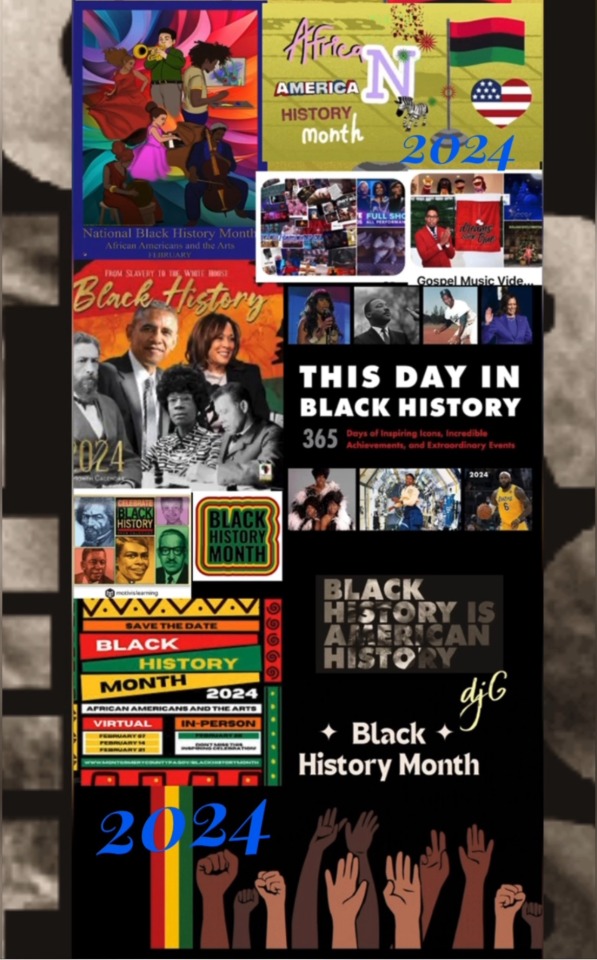
View On WordPress
#2024#@donnasmusicqkTW#African American History Month#Bachelor of Arts#BET Gospel#BET Sunday Best#blog#business#California#CalState LA#Capella University#Christian#CSULA#deejaniccaG.#djG#Donna Hise#DonnaHise#donnasmusicqk#donnasmusicqk WordPress Blog#entrepreneur#Facebook#God#Gospel#Gospel Artists#Hill City Church Hawthorne California#iddjG.net#Indiana University#IndieGospel#IndieGospel Artists#Innovation
2 notes
·
View notes
Text
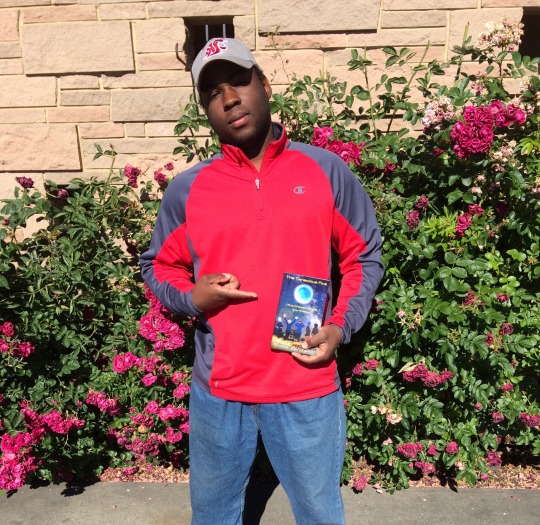
The Tenacious Five
#college#my life#up close and personal#writers on tumblr#personal#washington#author#young entrepreneurs#male writers#wsu#college student#college living#my friends#friends#african american#black tumblr#black is beautiful#independent author#independent artist#enjoying life#entrepreneurship#summer adventures#my first book#book selfie#christian books#children books#playa#ladies man#kdpamazon#kdp publishing
2 notes
·
View notes
Text










Oh, my! I've found my dream home! 😍
Darlington, SC circa 1890 **Not my pics.**
From the real estate listing:
"The "E.T. West House" is located within the Historic District of Darlington, SC and is listed in the National Register of Historic Places. The Historic District is rich in character and old-world charm and is known as "Reese Row" after the self-taught African American master carpenter, architect & entrepreneur, Lawrence Reese. Mr. Reese's houses are known for their intricate woodwork and elaborate gothic-style architectural elements. This Queen Ann Victorian home offers 4,246 sqft, 5 bedrooms, 2.5 baths, 12-14' ceilings, 8 ornate fireplaces, French doors, two balconies, stained glass windows & transom windows throughout much of the home. You will also find hard wood floors in the majority of the home, although carpet covers some of them. As was customary of the time, there are not one, but TWO outdoor kitchens that could transform into offices or used for storage. There is a butler's pantry nestled nicely between the kitchen and formal dining room. The primary suite is on the main floor & is connected to a full bath with a claw foot tub. Upstairs are four more large bedrooms, two of which have their own private balconies that are accessed by ornate wooden French doors."
#victorian architecture#queen anne victorian#historic architecture#black history#carpenter#african american history#old house#life#old ghosts#south carolina#southern architecture#stained glass windows#stained glass#1890s#black entrepreneurs#black inventors#part one
17 notes
·
View notes
Photo
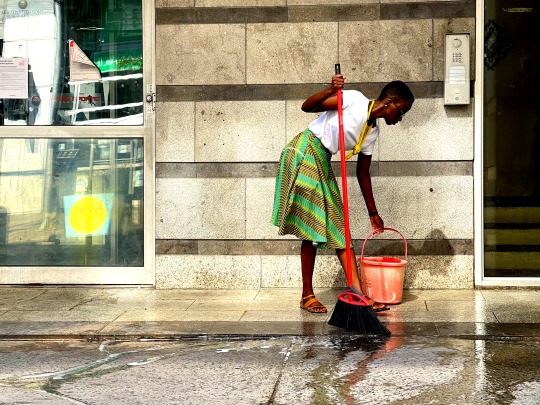

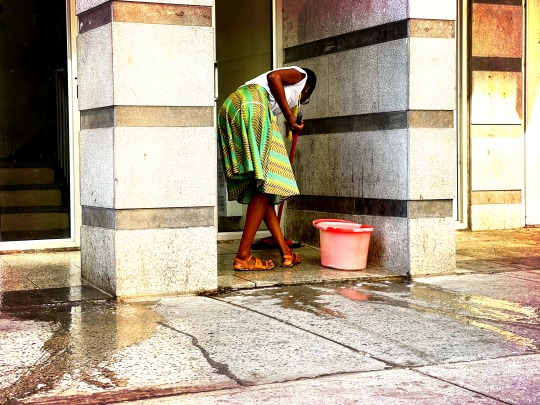
You Own It, You Clean It. Montreal, Quebec. 2022
13 notes
·
View notes
Text
Return of Mr Kumasi
It’s the RETURN of Mr Kumasi!
Artist, entrepreneur, rapper and community-minded individual, Kojo is a comic book lover at heart and it shows in Mr. Kumasi. Come meet the DEFINITION of indie heart and talent - a quintuple threat - Kojo is truly a KING! Mr. Kumasi was penciled, written, colored, lettered and edited by the man himself!
The story of an urban superman, Mr. Kumasi is a young African gentleman who acquires superpowers in a shocking manner! Although he initially takes his power for granted, he finally realizes his purpose and becomes the hero he needs to be!
Local legend and good friend Kojo is back to sign copies of his amazing comic Mr. Kumasi from 1pm-5pm right here at East Side Mags! Plus he’ll have the long-awaited Issue #3 for sale as well so you can keep reading about the adventures of Mr Kumasi!
And don’t forget to check out Kojo and Kandie’s studio right next door in West Orange:
Bifrost Studio - 275 Main St. - West Orange, NJ 07052 - bifroststudio275.com
#artist#entrepreneur#rapper#community#Kojo#comic#book#heart#Mr Kumasi#indie#talent#king#pencil#written#color#lettered#edited#urban#Superman#African#superpowers#shocking#power#purpose#hero#local#legend#friend#sign#signing
2 notes
·
View notes
Text
Empowering the Black Community: A Guide to Promoting Accessible Mental Health Resources

Have you ever wondered how to make mental health resources more accessible to the Black community?
Licensed therapist Tiffany Lindley is here to share her expertise on promoting self-awareness, self-care, and a purpose-driven life to help bridge that gap. Tiffany has faced these challenges herself and works tirelessly to break down the barriers in mental health care for the Black community. By sharing her journey and approach, Tiffany will outline in detail how you can be a part of creating a more inclusive and compassionate mental health landscape.
My special guest is Tiffany Lindley
Tiffany Lindley, a Dallas-based licensed professional counselor, is dedicated to addressing mental health stigma within the Black community. With a background in therapy and coaching, Tiffany's passion for mental health advocacy is evident in her private practice, Tiffany Lindley Counseling, and her role as a coaching consultant with Autophagy Lane. Tiffany's education in Houston and New York has helped her develop a unique approach to creating a safe space for individuals to talk about their trauma and mental health concerns. Her focus on helping others find their purpose and path to power, peace, and joy aligns perfectly with her commitment to destigmatizing mental health in the Black community.
In the Black community, mental health has long been a subject that's heavily misunderstood and stigmatized. This unfortunate reality can have a significant impact on both our personal and professional lives, as well as the overall well-being of the community. Breaking down these barriers and promoting accessible mental health resources is crucial to creating a healthier, happier environment for everyone. As we delve into this topic, we'll unveil essential resources and strategies to raise awareness, support those in need, and make mental health care a normalized conversation among the Black community. Together, we can become agents of change, fostering a more harmonious and supportive environment where everyone can thrive.
Here are the steps to discover and live your purpose through self-awareness and self-care.:
Educate the community on the importance of mental health care.
1. Acknowledge the stigma around mental health in the Black community.
Another vital aspect of addressing the stigma around mental health in the Black community is educating both individuals within the community and those that interact with them, such as healthcare providers and educators. This education must start at the grassroot level and grow across different platforms, reaching schools, workplaces, and spiritual institutions. By discussing mental health more openly and honestly, the community can work together to demystify and destigmatize mental health issues, reducing feelings of isolation, shame, or embarrassment associated with seeking help. 5: Advocates, allies, and mental health professionals also play a crucial role in recognizing and addressing the unique factors that contribute to mental health disparities in the Black community. These factors may include discrimination, generational trauma, and socioeconomic stressors that disproportionately affect Black individuals. By actively working to understand and tackle these underlying issues, and ensuring safe spaces for Black individuals to have honest conversations about their mental health, we can make significant strides in dismantling the stigma around mental health in the Black community. This will, in turn, enhance the well-being of individuals and the overall community, paving the way for future generations to access mental health resources more readily and thrive in their personal and professional lives.
2. Educate the community on the importance of mental health care.
Another critical aspect of educating the community about mental health care is addressing the unique barriers and challenges faced by minority populations, such as the Black community. A history of systemic racism, cultural stigma, and lack of representation within the mental health field has led to inequities in access to care and quality of available resources. In raising awareness and promoting education on mental health, it is crucial to also address these disparities and advocate for systemic change.
This can be done by encouraging community leaders and organizations to engage in conversations around mental health, creating safe spaces for open dialogue, and advocating for increased representation and cultural competency within the mental health profession. By addressing these systemic barriers, we can work towards creating more equitable access to mental health care and fostering a more inclusive and compassionate community.
In educating the community on the importance of mental health care is not just about raising awareness about mental health issues; it is about creating a supportive, inclusive, and empathetic environment that enables individuals to prioritize their well-being and personal growth. By fostering open dialogue, reducing stigma, addressing barriers to care, and highlighting the role mental health plays in living a purposeful life, we can empower individuals to actively engage in their mental health journey, ultimately leading to stronger, more resilient communities. As a society, we must continue to emphasize the significance of mental health care and work collectively to ensure that everyone has access to the resources and support they need to thrive.
3. Share personal experiences to normalize mental health conversations.
In addition to podcasts and other influential platforms, sharing personal experiences on social media can also have a major impact on normalizing mental health conversations within the Black community. Many people, especially younger generations, turn to social media platforms for information and support. By using these platforms to discuss personal mental health journeys, individuals can create a ripple effect that encourages more people to openly discuss their own experiences and seek the help they need. Furthermore, sharing personal stories on social media can also spark important conversations about how mental health stigma specifically affects the Black community and prompt discussions about the importance of culturally competent mental health care.
Creating safe spaces and support groups within the Black community can also facilitate the normalization of mental health conversations. By establishing environments where members feel comfortable discussing their mental health experiences without fear of judgment, communities can foster a sense of understanding and solidarity. These supportive environments can also help individuals develop healthy coping strategies, learn about available mental health resources, and empower them to become mental health advocates for themselves and others. As more people share their personal experiences and participate in these supportive communities, we can collectively work towards dismantling the stigma associated with mental health within the Black community and create a culture that prioritizes overall well-being and mental health access for all.
4. Identify and promote culturally-sensitive mental health resources.
To effectively identify and promote culturally-sensitive mental health resources, it is imperative to involve the Black community in the process. Collaboration with community leaders, mental health professionals, and advocacy organizations can help create targeted outreach programs that raise awareness about available resources tailored to the unique cultural needs of African-Americans. Additionally, these partnerships can foster a safer environment for discussing mental health concerns within the community, as trusted figures are directly involved in the dissemination and validation of these resources. By engaging with the Black community in the development and promotion process, mental health resources are more likely to be embraced and utilized by those who need them the most.
Lastly, educational initiatives aimed at dismantling cultural stigmas around mental health in the Black community can further support the promotion of culturally-sensitive resources. These initiatives may include training mental health professionals in cultural competence, holding community workshops and seminars to discuss and demystify mental health, and advocating for more representation of Black mental health professionals in the industry. This not only ensures that mental health support is more inclusive and relevant for the Black community, but also promotes a deeper understanding of the importance of seeking help and support for mental health challenges. With increased awareness and understanding, we can break down barriers and create a more compassionate, empathetic, and supportive environment for mental health care for the Black community.
5. Encourage Black community members to seek professional help.
Furthermore, it is important to create spaces where discussions around mental health are normalized and encouraged within the Black community. This can be achieved through various initiatives like mental health workshops, support groups, or providing dedicated platforms for individuals to share their experiences and learn from one another. Promoting open dialogue around mental health not only builds resilience among community members, but also helps individuals understand they are not alone and that their struggles are valid.
By fostering a supportive, non-judgmental environment that breaks the silence around mental health topics, it becomes more comfortable for individuals to reach out for professional help when needed. Collaborative efforts between mental health professionals, community leaders, and educational institutions can greatly contribute to increasing mental health awareness and literacy in the Black community. By inviting professional therapists, like Tiffany Lindley, to share their expertise via workshops, webinars, or panel discussions, community members can learn about the benefits of mental health services and the different options available to them.
Moreover, partnerships with educational institutions can assist in incorporating cultural competence into mental health care curriculum, ensuring future professionals are equipped to address the unique challenges faced by the Black community. Overall, these combined efforts will gradually destigmatize mental health issues and reinforce the importance of seeking professional help for the betterment of individual lives and the community as a whole.
6. Promote affordable and accessible mental health services.
It is essential to advocate for policies and initiatives that support the availability of affordable and accessible mental health services for the Black community. This includes lobbying for increased funding for community-based mental health organizations, urging insurance companies to cover mental health treatments more comprehensively, and pushing for mandatory cultural competence training for mental health providers. Encouraging mental health professionals to offer sliding scale fees or pro bono services can also help bridge any financial gaps that may prevent individuals from accessing the support they need. By coming together as a community and advocating for these policy changes, we can contribute to creating an environment where mental health care is accessible and affordable for everyone who needs it.
It is also important to support local non-profit organizations and initiatives that focus on mental health in the Black community. These organizations often provide valuable services, such as education, support groups, and resources to help people navigate their mental health journey. By supporting these organizations, we not only contribute to the development and expansion of mental health programs and services but also empower and uplift the Black community in fighting the stigma around mental health issues. Some such organizations include Black Mental Health Alliance, The Boris Lawrence Henson Foundation, and The Loveland Foundation, all of which are committed to improving mental health outcomes in the Black community by providing resources, education, and support. In promoting affordable and accessible mental health services is crucial in uplifting and empowering the Black community, fostering a culture of understanding, support, and healing.
7. Establish local support groups for open discussions.
Beyond providing emotional support and encouraging self-care, these support groups can also serve as hubs for educational resources and tools. By connecting individuals with mental health professionals, offering workshops or seminars, and sharing helpful books, articles, and podcasts, these groups can help participants develop a well-rounded understanding of mental health, treatment options, and coping strategies. This increased mental health literacy can enable individuals to become advocates for themselves and others, empowering them to make informed decisions about their mental health and inspiring them to spread awareness within their networks.
In establishing local support groups for open mental health discussions is a vital element in addressing the disparities in mental health resources and education in the Black community. By fostering safe spaces for connection, understanding, and collaboration, these support groups can dismantle stigma, promote self-care, and bridge the gap between professional services and community needs. Through a combination of emotional support, educational resources, and empowerment, we can work together to ensure that everyone has access to the information and resources they need to take control of their mental well-being and live their lives with purpose, compassion, and resilience.
8. Advocate for mental health education in schools and organizations.
Furthermore, mental health education in schools and organizations can help to identify early signs of mental health issues and encourage early intervention. Providing teachers, administrators, and employees with the necessary tools and resources to recognize potential mental health struggles in their students or colleagues allows for a more proactive approach to supporting individuals in need.
Early intervention can minimize the severity and long-term effects of mental health challenges, leading to improved overall well-being for individuals and fostering a more empathetic and nurturing environment within our schools and workplaces.
In mental health education is essential for creating a society that understands, accepts, and supports those facing mental health challenges, particularly within the Black community. By advocating for the inclusion of mental health education in schools and organizations, we can break down stigmas, promote access to mental health resources, and encourage individuals to live their lives with purpose and self-compassion. Through collective action and a commitment to understanding the diverse experiences that affect mental health, we can work towards building more inclusive and supportive environments that empower everyone, regardless of their mental health struggles, to reach their full potential and live a fulfilling life.
9. Collaborate with mental health professionals to address community needs.
Furthermore, collaborating with mental health professionals across various disciplines can also play a significant role in enhancing the representation of Black professionals within the mental health field. This is particularly important because, according to a report by the American Psychological Association, only 4% of psychologists in the United States are Black.
Representation matters, as it can encourage more Black individuals to seek mental health support, knowing that they are more likely to be understood and supported by professionals who share their cultural background and lived experiences. As a result, a collaborative approach among mental health professionals can lead to the development of more culturally sensitive treatment methods and help increase accessibility to mental health services.
In addition to focused collaboration among mental health professionals, engaging with the wider community is essential for creating lasting change in the conversation surrounding mental health within the Black community. Mental health professionals can partner with schools, faith-based institutions, local community centers, and other organizations to offer workshops, seminars, and support groups tailored to address the mental health needs of the Black community. These partnerships can also help build trust and normalize conversations around mental health, reducing the stigma that often prevents individuals from seeking help. It is through these joint efforts that mental health professionals can make a profound impact on improving mental health outcomes for the Black community and ultimately foster an environment of understanding, support, and growth.
In this meaningful conversation between LaQuita Monley and Tiffany Lindley, we've learned that promoting accessible mental health resources within the Black community is crucial to achieving happiness and living life with purpose. By acknowledging the existing stigma, educating ourselves and others, and sharing our personal experiences, we can begin to normalize conversations around mental health. Additionally, it's essential to identify and promote culturally-sensitive services, encourage seeking professional help, and advocate for mental health education in our schools and organizations. With local support groups and collaboration with mental health professionals, we can create a supportive network that fosters self-awareness and self-care. Let's embrace these steps and work together in building a resilient, compassionate, and thriving community.
What other steps are you taking towards Discover and live your purpose through self-awareness and self-care.?
Comment below and let me know.
Connect with me here:
https://www.linkedin.com/company/laquita-s-toolbox/
https://www.facebook.com/groups/1559496044240163
https://www.youtube.com/LMonleyToolbox
https://www.laquitamonley.com/laquitastoolbox
https://www.twitter.com/laquitamonley1
#mental wellbeing#african american#culturally christian#christian business#christian blog#podcast#christian podcast#black mental health#black mental wellness#growthmindset#entrepreneur
1 note
·
View note
Text
Things about Best Wellbeing Podcasts UK: Top 5
20 Best UK Lifestyle Podcasts greatest UK Lifestyle podcasts coming from thousands of podcasts on the internet and positioned by traffic, social media followers, domain name authority & freshness. We've videotaped a riches of online meetings and podcasts and were questioned under a massive assortment of different program from different individuals who operated coming from the very same workshops to be in the same sites. We were additionally asked to provide understandings concerning our lives as a imaginative supervisor.
best podcasts on spotify lifestyle Listed below are 20 Best UK Lifestyle Podcasts worth listening closely to in 2023 1. The World is Elevating It's become rather merely impossible to take a adventure overseas. However, one point that regularly is abundantly crystal clear is that we're in a excellent place currently. For many years, we've experienced the convenience of residence and convenience abroad. Nevertheless, it's essential to recognize just how a lot that lifestyle has altered in the last couple of years.
SheerLuxe Podcast London, England, UK SheerLuxe.com is an on the internet publication featuring updates, viewpoints, and revises on all things pertinent and preferable for the present day lady. This has been improved for July 2016 along with brand-new component featuring a new concern cover, new job interviews along with members of the magazine, brand new reviews and a number of various other information updates, as headlines travels all around in hunt.
Song right into the bi-weekly Highlights podcast to listen to the SL group dig deeper into the accounts that have everyone chatting, from fashion and charm to society and way of living. When chatting concerning what goes on in the studio, take a appeal at our meetings with members of the SL crew and the group's several characters who function under them, as properly as in-house pros. If you can possess simply one regulation of the video game: Receive clear of all those'must miss' headlines?
Likewise in English Beauty and Makeup Podcasts, UK Fashion Podcasts sheerluxe.com/shee. Play⋅ 21.7K⋅ 17.2K ⋅9 episodes / month ⋅ Avg Length 39 min ⋅ Apr 2017 Get Email Get in touch with 2.74% OFF MUST SEE THESE Dimension Manuals! All designs are coming from the UK MUST SEE THESE Dimension GUIDES!
Prosperity Kitchen Podcast along with Gemma McCrae England, UK Join International Life Coach and Business Coach Gemma McCrae, for a once a week dosage of creativity and inspiration on all traits to perform along with residing a Thriving Life. We chat about growing wealth, financial liberty, family members and meals security, nourishment control, and more. Organized through Gemma McCrae, our resident exercise expert Gemma McCrae, and held by international physical fitness instructor Gemma McCrae.

Along with experienced job interviews, & recommendations sections topics are going to vary coming from Happiness, Health, Personal Development, Motivation, Career Coaching, Love, Peace of mind, Natural Health, Nutrition, LifeStyle, Life Coaching, Parenting, Cooking, etc. The brand new design for service results will certainly deliver focus from neighborhood and nationwide media, and new organization designs. The target of this brand-new model is to market well-being so that business people can get to the next degree in your company.
Therefore much you will certainly be spoilt for choice! And only like how it was in the past, the two were always ready to select up where they left off. I was likewise asked three times about that particular component of her character: where things transformed. She claimed the 1st was not in a very excellent context and you're not pretty sure what you are going to perform without them. That's the session for all. There's nothing much to worry about right now.
Likewise in UK Life Coach Podcasts, Prosperity Podcasts prosperitykitchen. Play⋅ 5.9K⋅ 801 ⋅1 episode / week ⋅ Avg Length 28 min Obtain Email Connect with 3.17K-16.5k E-mail Phone Info Email Submissions: Please note: this show has been archived at our website. It is not linked to any other sites or information resources.
High Performance Health London, England, UK The High-Performance Health Podcast is all concerning maximizing your physical body, thoughts, and lifestyle for high efficiency. From the greatest to the worst you'll discover in the Health Revolution Lounge, in no certain order. Listen closely to it as you check out it grow out of the comfort of your bed. Every episode is stuffed along with real-time analysis, with a multitude of medical professionals discussing their recommendations, health suggestions, recommendations from leading pros in health and fitness and exercise marketing!
Loaded total of actionable understandings, strategies, bio hacks, way of life hacks, mindset strategies, and specialist functionality guidance, Angela Foster, a Lifestyle Expert is on a purpose to enhance your human ability. Below are some of her understandings, methods, and insight. 1. Generate Your Lifestyle Plan on Your Next Business Every business starts by figuring out how numerous hours you'll do in order to produce it with the week and find out your individual needs and work circulation.
2 notes
·
View notes
Text

Angela James
Gender: Female
Sexuality: Lesbian
DOB: 22 December 1964
Ethnicity: African American, white
Nationality: Canadian
Occupation: Former Olympic ice hockey player, ice hockey coach, ice hockey referee, entrepreneur
Note: Considered the first superstar of modern women's ice hockey, James has been honoured by numerous halls of fame.
#Angela James#lesbian athletes#lgbt#lesbianism#wlw#female#lesbian#1964#black#african american#biracial#canadian#poc#olympian#athlete#entrepreneur#coach#ice hockey#referee#first
61 notes
·
View notes
Photo
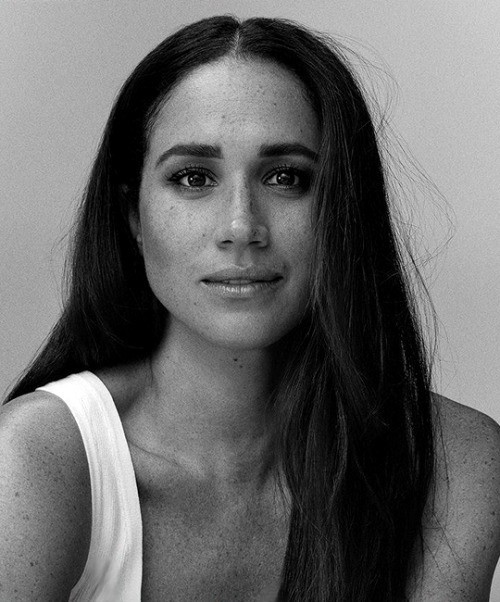
Meghan Markle photographed for her new podcast series, 'Archetypes' now available on Spotify.
#meghan markle#the duchess of sussex#archetypes#podcast#archewell audio#spotify#2022#actress#humanitarian#entrepreneur#black woman#black women#african american#african american women#black beauty#biracial#mixed race#women#beautiful#gorgeous#british royal family#photo#sbrown82
161 notes
·
View notes
Text
#business#models#malawi#africa#photography#travel#girls#lilongwe#photooftheday#melanin#entrepreneur#modeling#nonprofit#african#ngo#outdoorsphotography#change#model#women
2 notes
·
View notes